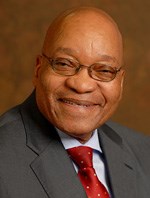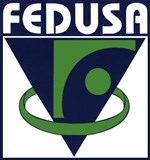
Top stories






More news


Marketing & Media
Ads are coming to AI. Does that really have to be such a bad thing?














The letter, penned by Dennis George, Fedusa's general secretary said the union was dissatisfied mostly by the setting of tolling prices in the light of the perceived lack of transparency and what some have called state-endorsed profiteering by Sanral.
"Our management committee therefore resolved yesterday to seek an advisory opinion from the Competition Commission regarding the setting of toll prices and with a view to the possible establishment of a regulatory body to oversee the balancing of interests in this process," read the letter.
George said the open letter to Zuma was as result of the non-response to their previous engagement with the presidency.

"Our previous letter (dated 13 January 2012) in which we requested an urgent meeting with your good self to discuss the then proposed implementation of the Gauteng e-tolling system refers. For reasons unbeknownst to us, we have as yet not received a response from your office," he said.
The e-tolling debacle had been unfolding for the past few months with objections coming from a number of organisations.
The Automobile Association this week objected to plans by the South African National Roads Agency (Sanral) to establish a dedicated traffic police unit, saying it could be construed as the establishment of a private army for the sole purpose of toll enforcement.
"Our main concern regarding the process as it unfolded is the total lack of transparency. When the work on the Gauteng roads commenced, most people thought it to be mere infrastructure maintenance in preparation for the 2010 FIFA World Cup," said George.
In his letter George added that there was no direct indication and no proper prior consultation with interest groups about any future tolling costs at that stage.
"This lack of transparency continued since the first indication of possible costs to road users and we believe there is still a lack of a clear and open agenda on the matter," he said.

For more than two decades, I-Net Bridge has been one of South Africa’s preferred electronic providers of innovative solutions, data of the highest calibre, reliable platforms and excellent supporting systems. Our products include workstations, web applications and data feeds packaged with in-depth news and powerful analytical tools empowering clients to make meaningful decisions.
We pride ourselves on our wide variety of in-house skills, encompassing multiple platforms and applications. These skills enable us to not only function as a first class facility, but also design, implement and support all our client needs at a level that confirms I-Net Bridge a leader in its field.
Go to: http://www.inet.co.za